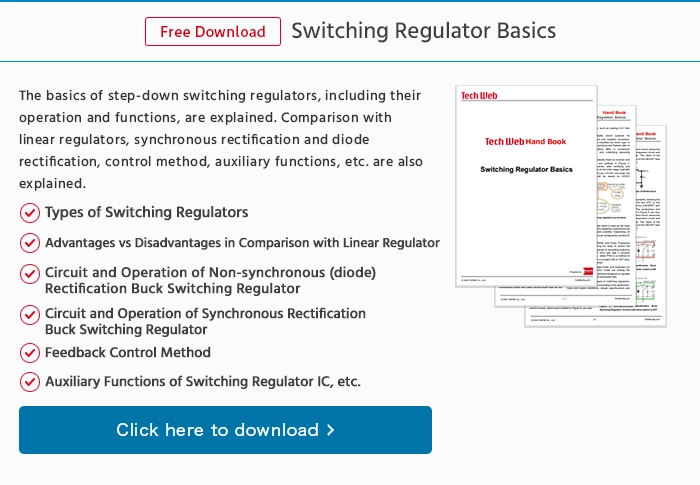DC-DC Converter
<What is a DC-DC Converter?>
As its name implies, a DC-DC converter converts one DC voltage to another.
The operating voltage of different electronic devices such as ICs can vary over a wide range, making it necessary to provide a voltage for each device. DC-DC converters are crucial in providing the necessary voltage for different electronic devices.
A Buck Converter outputs a lower voltage than the original voltage, while a Boost Converter supplies a higher voltage.
Buck and Boost Converters adjust the output voltage to meet the requirements of different devices.
Linear or Switching Regulators for DC/DC Converters
DC-DC converters are also referred to as linear or switching regulators, depending on the method used for conversion. Some converters allow for fine-tuning of the output voltage, offering adjustable output to meet specific application needs.

- Device for converting to a lower voltage
- Buck or Step-Down converter
- Device for converting to a higher voltage
- Boost or Step-Up Converter
- Device capable of converting to a higher or lower voltage
- Boost-Buck Converter
- Device for supplying a negative voltage
- Negative Voltage or Inverting Converter
DC-DC converters are essential components of modern electronic equipment. They help reduce energy consumption by efficiently converting power to the required levels.







